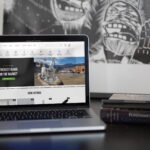Ruling Comes Amid Mounting Scrutiny of Self-Driving Tech Giants Pushed as Foolproof
A Florida judge ruled this week that a wrongful death lawsuit against electric automaker Tesla can proceed to trial, rebuking the company’s efforts to evade accountability for a horrific crash involving its vaunted Autopilot feature.
Palm Beach County Judge Reid Scott denied Tesla’s bid to dismiss claims brought by Kim Banner, whose husband Jeremy perished in 2019 when his Tesla Model 3 collided catastrophically with a semi-trailer truck while allegedly under Autopilot’s control.
In his decision, Judge Scott stated evidence indicates Tesla executives including CEO Elon Musk potentially knew the driver assistance software was defective but misled the public on its capabilities. The ruling raises pressure on Tesla as it defends its self-driving tech against growing concerns.
Records show Banner’s Tesla smashed into a crossing semi at 69 mph just 10 seconds after he activated Autopilot, shearing off the car’s roof and killing him instantly. Data shows neither automatic braking nor evasive maneuvers deployed ahead of the fatal impact near Fort Lauderdale.
Judge Scott wrote the facts “are nearly a carbon copy” of America’s first Autopilot-related death in 2016, when a Model S drove straight under another truck trailer without slowing. He suggested Tesla ignored its own data showing line markings often confuse its computers when determining hazards.
The decision marks a rare legal rebuke for Tesla’s automation claims after a California judge absolved it of blame for a separate crash last year. But it comes amid increasing scrutiny of Autopilot marketing that seemingly oversells its competence at the expense of safety.
Tesla dissolved its press department years ago and did not comment on the Florida lawsuit. It previously called its driver assistance features merely supplemental and warned drivers to remain fully attentive. But prosecutors argue Tesla knows autonomy claims sell cars, even as accidents pile up.
Tesla faces dozens of additional injury and death inquiries nationwide over Autopilot’s performance. Crashed vehicles have also killed multiple bystanders with no driver behind the wheel. The scandals highlight the need to balance innovation against consumer protection in the fiercely competitive auto industry.
Banner’s lawsuit can now proceed toward an eventual jury trial against the world’s most valuable carmaker, barring an appeal or settlement. Her legal team contends Tesla executives valued profits over being transparent around newfangled technology with deadly defects.
Whatever the final outcome, the Florida decision ensures further scrutiny of automated driving technology marketed as more capable than it truly is. It also poses thorny questions on the duty of mobility giants to keep hype around futuristic offerings in check even if it hurts sales.
Image by user6702303 on Freepik

Claire Marshall is the dedicated Editor-in-Chief of NewNoted, with a lifelong passion for journalism and a commitment to transparent and responsible reporting. Hailing from Charleston, South Carolina, she brings a love for storytelling, a devotion to ethics, and a deep appreciation for diverse perspectives to her role at the helm of NewNoted.



